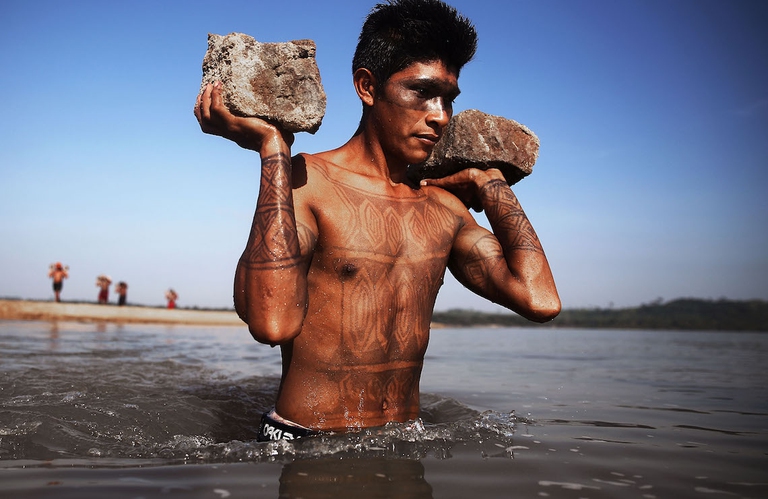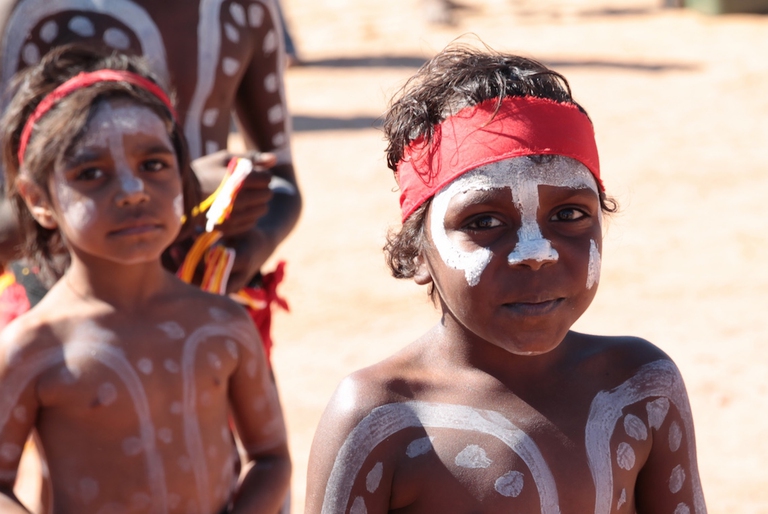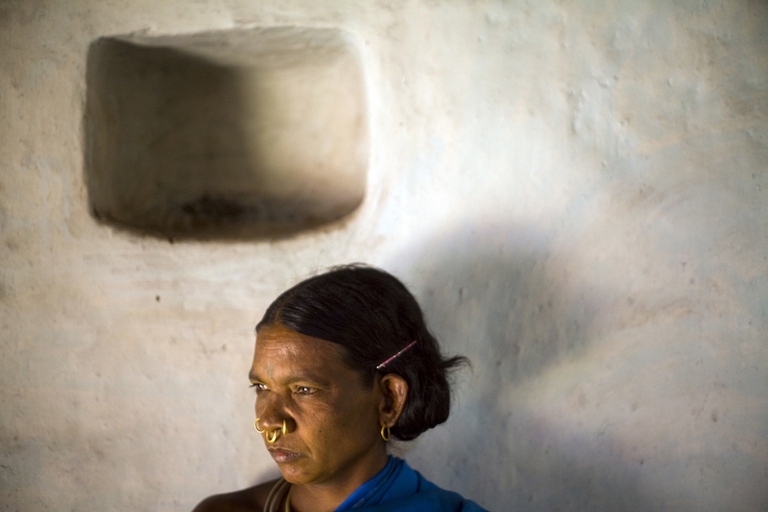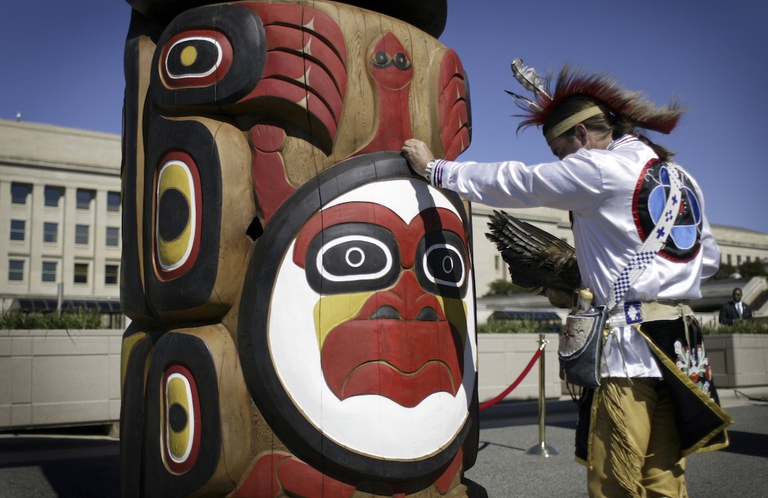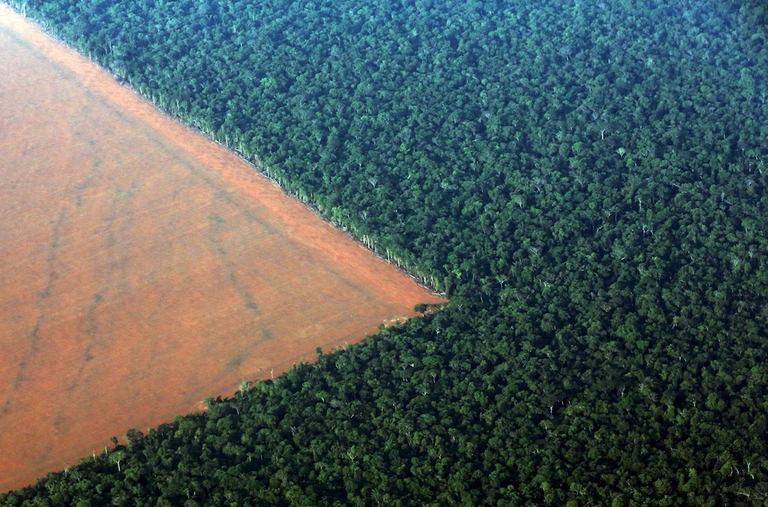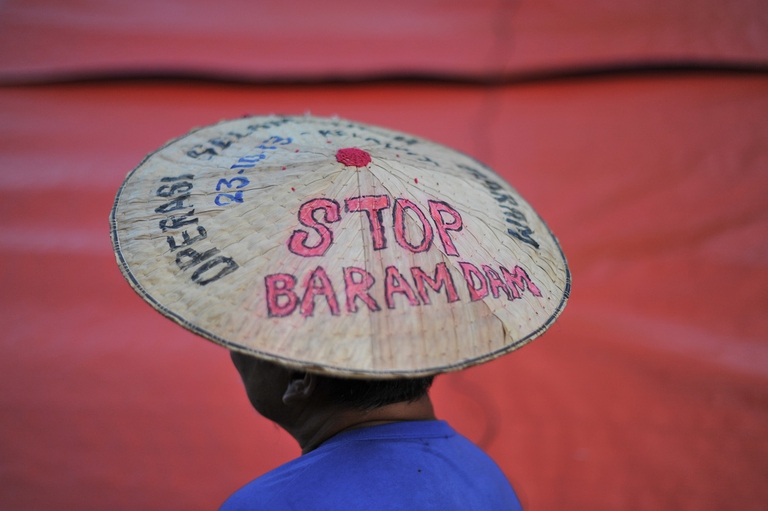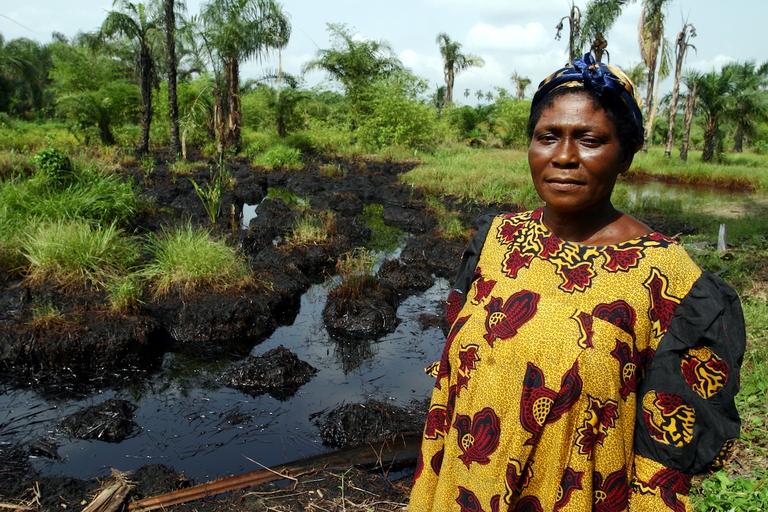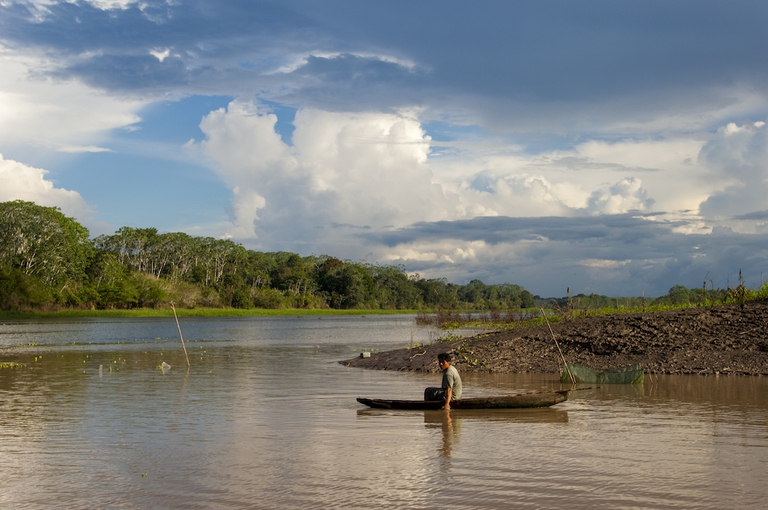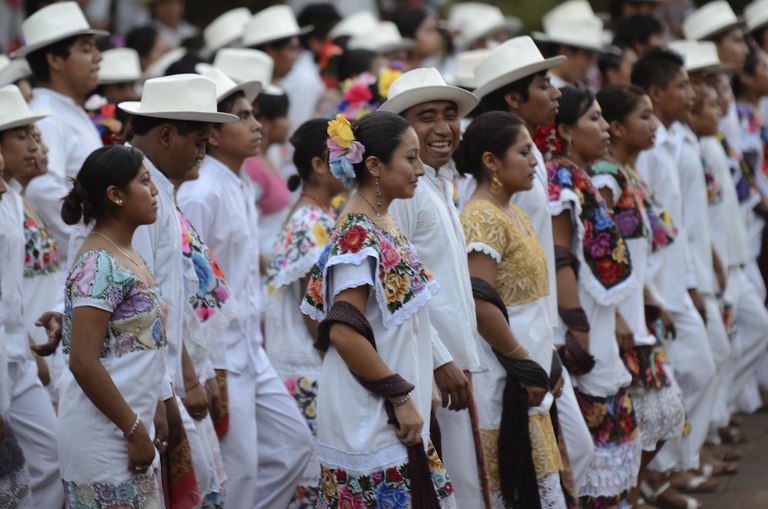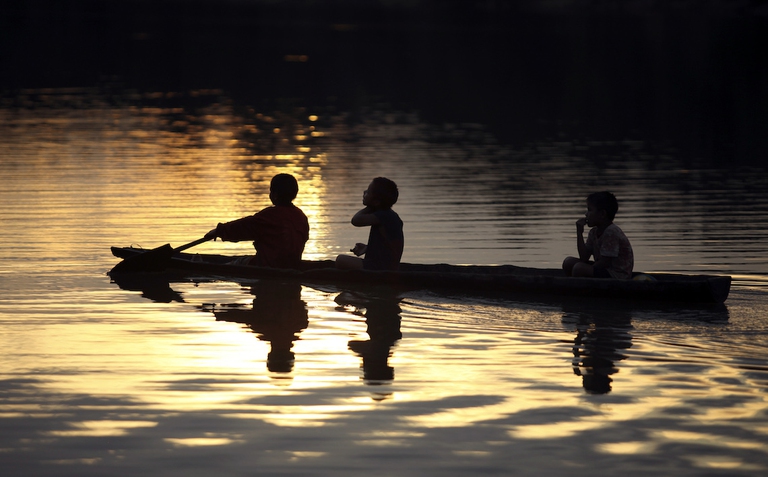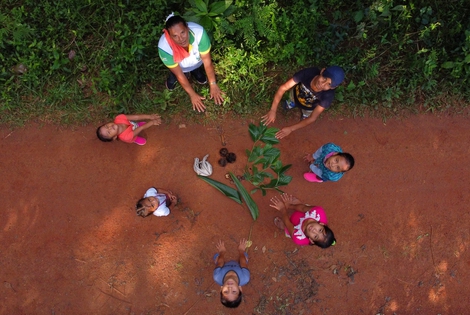
Three people putting the protection of the planet before themselves. Three powerful stories from Latin America, the deadliest region for environmental activists.
The Munduruku block the Tapajós dam, Brazil The hydroelectric São Luiz do Tapajós dam would have been one of Brazil’s largest. It was planned to alter the course of the Tapajós River, one of the Amazon River’s largest tributaries, inundating over 700 square kilometres, including of Munduruku land. But it won’t go ahead. Together with organisations such as Greenpeace and Survival International the
The hydroelectric São Luiz do Tapajós dam would have been one of Brazil’s largest. It was planned to alter the course of the Tapajós River, one of the Amazon River’s largest tributaries, inundating over 700 square kilometres, including of Munduruku land. But it won’t go ahead. Together with organisations such as Greenpeace and Survival International the tribe opposed the project, which didn’t pass the Environmental Impact Assessment and was blocked in August.
An important victory that, however, doesn’t mark the end of the approximately 12,000-strong Munduruku’s struggle, who continue to battle Brazil’s thirst for hydroelectric energy. There are at least forty projects on the Tapajós River in the pipeline. Not to mention those that have already been completed, such as the Belo Monte dam on the Xingu River, fought for decades by a number of Amazonian tribes.
It took 37 years and was the longest-running land claim in the history of Australia. Finally, on the 21st of June the Kenbi Land Claim came to an end and the Larrakia Aboriginals were given back 52,000 hectares of their ancestral lands. Furthermore, the government has promised to award over 30 million Australian dollars to restore territories damaged by its activities.
The history of Aboriginal Australians is one of expropriation and abuse. For this reason the official ceremony marking the restitution of their lands held in Darwin was a bittersweet occurrence. If, on the one hand, it is a historic victory, on the other, in the words of Jordan Singh, one of the 2,000 members of the Larrakia tribe, “I’m very sad that our mums aren’t here today“.
The Dongria tribe of the state of Odisha, on the eastern coast of India, had already refused the construction of a mine by giant Vedanta Resources in 2013. Not satisfied, at the beginning of 2016 the Odisha government appealed to the Indian Supreme Court, asking it to call a referendum to reconsider the project. But the Dongria unequivocally opposed what would have been an environmental catastrophe and an attack on their way of life. In May the court confirmed that the referendum, and thus the mine, won’t go through.
“Even if you behead us, or our flesh and bones flow in rivers of blood, we won’t spare our mountains,” there the words of tribal leader Lodu Sikaka. However, the threat of mining projects continues given the vicinity of Dongria territories to a Vedanta bauxite refinery.
From India to the United States, another victory against the extractive industry. The Lummi are a Native American tribe of the state of Washington, on the western coast of the United States: for years they’ve been fighting against the construction of a coal export terminal, the Gateway Pacific. The project threatened Xwe’chi’eXen, known as Cherry Point, a site of cultural and historic importance to the tribe, surrounded by waters protected under the Lummi Nation Treaty.
This led the Lummi to appeal to the Army Corps of Engineers, which blocked the project in May. Its commitment, such as that of many other inhabitants of the Pacific Northwest of the United States, has led to the rejection of five out of six projects for the construction of coal export terminals in just four years. The only one that remains ongoing is the Millennium Bulk Terminal.
Eliseu Lopes, a Guaraní activist in Brazil, told us in an interview that the Brazilian government should “fix the boundaries and respect our land”. It seems that his call was heeded in the case of the Kawahiva, an uncontacted tribe in the state of Mato Grosso’s Amazon, who were granted rights to their land thanks to a decree issued by former Justice Minister Eugênio Aragão in April. Protected areas will be created to shield this group from the threat of illegal logging, which has forced it to live on the run and caused the tribe’s contamination because its members haven’t developed immune defences against diseases brought by outsiders.
In the next few months, FUNAI, Brazil’s Indigenous Affairs Department, will establish the limits of the indigenous territory as well as how many funds and field workers will be designated to protecting it.
Another dam blocked. Another battle fought for years and won thanks to the determination of a people. The indigenous inhabitants of the Baram region of the state of Sarawak in Malaysian Borneo have opposed the construction of the Baram dam on the river of the same name for two years. In 2013 the Sarawak government took away their land titles, prompting hundreds to blockade the area destined for the dam for two whole years.
An action so effective – notwithstanding the government’s at times violent efforts to break it – that the project simply couldn’t go ahead. This forced the authorities to give up on the dam and revoke the order that had deprived Baram’s people of ownership of their ancestral lands on the 23rd of March.
Rigoberto Lima Choc- 1 killed in #Guatemala after #palmoil ecocide -foto by @palabrasdeabajo https://t.co/LrNObwfAst pic.twitter.com/EpJCFRJT2T
— Doug Hertzler (@doug_hertzler) March 31, 2016
An appeals court in Guatemala confirmed the charge of ecocide against the Spanish-African palm oil producer Empresa Reforestadora de Palma de Petén SA (RESPA) in January. Thanks to the suit brought by the Commission for the Defence of Life and Nature, in which indigenous participation figures strongly, it was proven that the cultivation of oil palm along La Pasión River caused the massive die-off of millions of fish and other animals, as well as huge damage to tens of thousand of Guatemalans.
Rigoberto Lima Choc, indigenous professor and human rights activist, had been the first to document the socio-environmental destruction caused by RESPA. He was assassinated on the 18th of September 2015 outside the court where a judge had ruled that the company suspend its activities. It is thought that the “big palma” lobby is behind his killing, as well as the kidnapping of three members of the Commission who were later released. A confirmation of the courage of indigenous and environmental activists even in the face of the ferocity of those who want to deprive them of their rights.
In response to the lawsuit brought by four farmers of the Ogoni tribe a Dutch court has deliberated that Royal Dutch Shell could be held liable for the damage caused by oil extraction in the Niger Delta starting from the 1950s. The decision, announced on the 18th of September 2015, overturns a 2013 ruling in Shell’s favour, opening the way for the Ogoni to sue the Anglo-Dutch colossus for damages.
It took the courage of a few members of the tribe who fought the might one of the world’s most powerful companies for seven years for faith in justice to be restored, Geert Ritsema of Friends of the Earth Netherlands commented. Alali Efanga, one of the Ogoni farmers who sued the multinational, hopes that Shell will “finally begin to restore the soil around my village so that I will once again be able to take up farming and fishing on my own land”.
The Wampis tribe of the Peruvian Amazon established the country’s first autonomous indigenous government on the 29th of November 2015. A territory of 1.3 million hectares created to defend the way of life of 100 Wampis communities, home to over 10,000 people. A nation created in the name of sustainability and the safeguard of a land threatened by the incursion of the extractive industry, illegal loggers and oil palm plantations. A government with an elected parliament and a statute that, as well as exhorting national authorities to respect indigenous autonomy, calls for gender equality.
The Wampis nation doesn’t want to be independent from the Peruvian government. Rather, “unity will bring us the political strength we need to explain our vision to the world and to the governments and companies who only see the gold and oil in our rivers and forests. For them, too often we are like a small insect they want to squash”, in the words of Waimaku (Wampis Visionary) Andres Noningo Sesen.
Maya Beekeepers, an organisation bringing together 15,000 beekeeping Mayan families, has compelled Monsanto to consult with indigenous populations with regards to its intentions of planting 250,000 hectares of genetically modified soy in the Yucatán peninsula in the south of Mexico. The group brought the case to court, arguing that the use of the herbicide glyphosate on such fields would threaten their health and means of subsistence. In November 2015, the court deliberated in its favour.
It confirmed what the Mexican constitution establishes, that indigenous communities must be consulted in the event in which they’re affected by economic and developmental projects. Notwithstanding the victory of Maya Beekeepers, the battle to defend the integrity of the land from agrochemical conglomerates continues, in particular with regards to a national ban on the sale of GM maize seeds.
Yaigojé Apaporis is an indigenous reserve in the Colombian region of Amazonas, in the south of the country. Now it has also been recognised as a national park, which stops corporations such as Canadian Cosigo Resources from conducting mining activities in the region. In 2009 the company was granted a license to extract gold in Yuisi, one of the areas considered most sacred by the reserve’s indigenous populations.
According to Colombian law, indigenous reserves’ soil is the collective property of its native inhabitants. But the subsoil is considered property of the state, leaving it vulnerable to exploitation. Six years ago Cosigo went knocking on the doors of the area’s indigenous leaders, offering money for their land. Their staunch refusal was followed by a five-year long legal battle, which culminated in the decision taken by Colombia’s Constitutional Court in October 2015 to declare Yaigojé Apaporis a national park and revoke Cosigo’s licence. Yet another example of how indigenous victories don’t come easy, but that it’s worth continuing in the fight.
Siamo anche su WhatsApp. Segui il canale ufficiale LifeGate per restare aggiornata, aggiornato sulle ultime notizie e sulle nostre attività.
![]()
Quest'opera è distribuita con Licenza Creative Commons Attribuzione - Non commerciale - Non opere derivate 4.0 Internazionale.
Three people putting the protection of the planet before themselves. Three powerful stories from Latin America, the deadliest region for environmental activists.
The Amazon became an alternative classroom during the pandemic. Now, the educational forest in Batraja, Bolivia, lives on to teach children and adults the value of nature.
Influential scientist, activist and author Vandana Shiva fights to protect biological and cultural diversity, and against GMOs.
Kimiko Hirata has blocked 13 new coal plants in Japan, but she hasn’t done it alone. The 2021 Goldman Prize winner tells us about her movement.
The Goldman Environmental Prize, the “green Nobel Prize”, is awarded annually to extraordinary activists fighting for the well-being of the planet.
A special report from the Yuqui territory delves deep into the dreams, challenges, joys and sadness of one of Bolivia’s most vulnerable indigenous groups.
The Yuqui people of the Bolivian Amazon fight not only to survive in the face of settlers, logging and Covid-19, but to preserve their culture and identity.
We talk to Shaama Sandooyea, activist and marine biologist from Mauritius onboard Greenpeace’s Arctic Sunrise ship in the heart of the Indian Ocean.
Jair Bolsonaro is accused of crimes against humanity for persecuting indigenous Brazilians and destroying the Amazon. We speak to William Bourdon and Charly Salkazanov, the lawyers bringing the case before the ICC.
